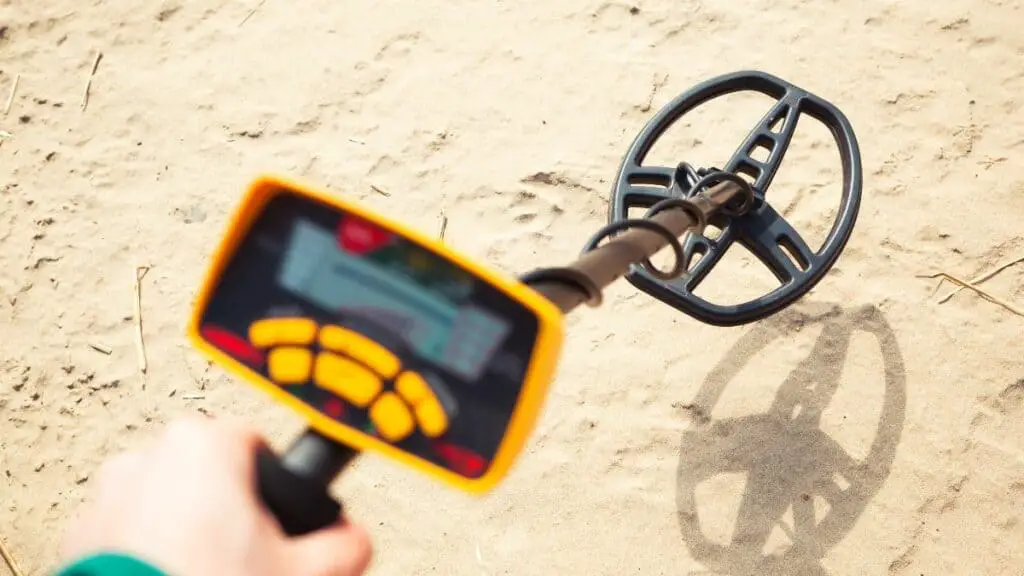Online STEM Activities 2024 (14 Ideas for Home Learning!)
There are lots of different ways to introduce your kids to STEM activities. Finding ones you can enjoy from the comfort of your home can be a great way to supplement learning or to help your child develop a new interest. Here’s a collection of some great stem activities you can explore with your kids.
Related post: Cheap STEM Activities with Household Items: STEM-at-Home!
Code Monster/Code Maven
If you’re looking for a way to introduce your children to coding, this is a quick visual way. Code Monster is the version aimed at younger children, and Code Maven is aimed at slightly older learners.
Both sites work in the same fundamental way. The screen is split into two. On the left is some javascript and on the right is a screen that shows what it does. Instructions guide you through making changes to the code to see what happens.
It’s not going to teach you how to code a game, but it is a great introduction.
Explore the Scale of the Universe
One thing you need to get your head around for any aspect of science, technology, engineering, and maths is the relative size of things. This cool online tool lets you zoom in and out through a range of objects. You can explore the smallest things that scientists think exist through the giant structures in the universe.
Not only does this help you to understand the scale of the universe, but it also helps you to understand how powers of ten and prefixes work to express scale. A really nice feature of this tool is that you can click on all of the objects. It shows you to learn a little more about them. There are some fascinating items here that just might spark a whole new interest.
Khan Academy
Khan Academy is a fantastic free online resource for supporting your kids’ learning at school. If you’re homeschooling, then this is definitely a tool you’ll want to consider making use of. This free online portal gives you access to a wide range of courses. There are lessons on math, science, computing, and more.
The combination of pre-recorded lessons and assessments allows you to tailor the experience to your needs. The site will keep track of your kids progress and let them dip in and out of topics as they want and need.
The extensive collection of questions means that school students will have an almost unlimited number of problems to practice on. There should be something suitable for most kids with courses for 1st grades all the way through to AP/college classes.
mBlock
mBlock is a piece of software that aims to help kids make the step from coding with building blocks to using an actual language, python in this case. You can start out with a drag and drop style coding system before making the step to using a written language. This system also introduces some more advanced ideas like coding an AI.
This is an excellent option for children who already have an interest and some experience with computing. It will also appeal to anyone who likes to learn through games.
PhET Simulations
One of the greatest tools for learning is experimentation. However, it’s not always possible to perform all the experiments you might want to. This is true, whether you’re learning at home or school. That’s why Colorado University created PhET.
This amazing site has a huge number of interactive simulations. They are split into Physics, Chemistry, Math, Earth Science, and Biology. These simulations let learners try experiments they otherwise might not be able to. The well-thought-out simulations are great for visualizing what’s going on. This is definitely a resource that’s worth exploring; there are all sorts of hidden gems in their collection.
Many of the online science activities in their collection have supporting worksheets and resources. You just need to explore the tabs on the activities pages, and you can find resources teachers have created for their students.
Royal Academy of Engineering
If you’re looking for a source of stem activities and materials to get your children excited about stem careers, then the Royal Academy of Engineering is a treasure trove. They have a wide variety of activities and challenges to try. They are all focused on helping kids learn stem skills and knowledge.
There are short and fun activities that you can do in an hour. But, the most exciting aspect is the projects. These are prompts and resources to help students complete projects that should take between 5 – 10 hours. They cover a variety of stem subjects and topic areas. They also periodically change the long term project. Typically there is a new one each term, which is a gift for homeschoolers.
Science for Kids
Science for kids is a fantastic resource for parents who want a big collection of ideas for activities they can try with their kids. The site has a range of lesson plans, quizzes, and project ideas. They are all split into topics so you can find something that suits your needs. You can send kids to the site, and there are videos for them to watch and a few games. However, I think the most significant value for this site is for parents. Most of the resources are probably suitable for middle school kids.
Scratch
If your child wants to create something with code, then Scratch is a great option. The site is aimed at kids aged 8-16. It uses a drag and drop coding system that lets them create pretty much anything they can visualize. With this, they can learn the principles behind coding. Then use them to build videos and games.
This is a fantastic resource for generating interest and excitement about coding before you introduce the idea of programming languages. By playing with this tool, you can learn the fundamentals of coding, which is a great place to start.
Sheppard Software — Online Math Games
If you struggle to get your kids to practice their math skills, this site is a great option. The site is packed full of math-based games. You can choose a skill that your child needs to practice, and there will be a game to suit. The topics start at basic math skills and go up to pre-algebra.
The games are not going to knock anyone’s socks off with their innovative storylines and graphics. But they are a good way to get kids to do a lot of math practice or just fill a few minutes with something of value.
The site also offers games on other topics including, science and health. However, math games are the biggest collection, and they have received the most love.
STEM Learning Online Lessons
This one is a good option for parents looking for resources to help with homeschooling or support home learning. STEM Learning is a UK-based website that provides a wide range of resources to support parents. You can find remote lessons with accompanying worksheets, suggestions for education science and computing apps, and inspirational videos from people in STEM careers.
Because it is a British site, some of the terminologies may be unfamiliar, so here is a quick primer. Primary resources are split into key stage 1 (5-7-year-olds) and key stage 2 (7 – 11-year-olds). Secondary resources will be divided into key stage 3 (11-14-year-olds), key stage 4 (14-16-year-olds), and key stage 5 (16-19-year-olds).
Swift Playgrounds
If you are a firmly Apple family, then you might want to look at Swift Playgrounds. This is a surprisingly complex and layered app that teaches coding. The surprising thing is that you get it all for free.
The app teaches coding through games and puzzles. The gradually increasing complexity eases you into the ideas of computing and coding and makes it fun at the same time. As well as the ‘learn to code’ section, there is also a range of challenges that push you to apply your new skills to solve ever more complex ideas.
Because it starts so simple, children as young as 4 can get something out of this app. However, it remains appealing for all ages, including adults looking to learn the concepts behind coding.
Another nice feature is that the software is compatible with a range of robots and drones. You can write code for Sphero, Dash, MeeBot, Tello EDU devices.
The only downside to this software is that the coding language you’ll learn isn’t widely used. In fact, it’s proprietary to Apple. But, learning any language makes it easy to learn more. Plus, it’s fun.
TED-Ed
TED (Technology, Entertainment, and Design) was a non-profit started in 1984. Originally it was just a private conference for people to share ideas. It’s grown into a global phenomenon now, and in the last few years, they’ve turned their attention towards education.
TED-Ed is a collection of TED-style lessons. They’re reasonably short, often nicely animated videos on a wide range of topics. The lessons come in four parts – watch, think, dig deeper, discuss. After watching the video, there are some short questions to get you to think about what you just saw. Dig Deeper points you at more resources, so you can go and find out more on the topic from reliable sources. Finally, the discussion portion is a chance to share ideas and thoughts in a curated forum.
There are loads of great lessons to try. I would recommend that parents give them a try as well; you’re sure to get something out of it.
YouTube

YouTube is a fantastic resource. As long as you can resist straying into the rabbit warrens of cat videos, you can actually find a lot of valuable content. There is a large number of great science-themed YouTube channels that offer a lot of learning. The attractive styles and fun demonstrations make them engaging, and they feel different from online pre-recorded lessons. Watching some of these videos can be an excellent supplement for home learning.
Fun Science Demos
Science class demos are often the most interesting or exciting science experiments that teachers can perform. Unfortunately, they’re over quickly, and because they’re so cool, kids can miss out on the learning. Fun Science Demos is a channel that creates exciting and educational videos that showcase the best of school science. Because they’re videos, you can watch them over and over to enjoy the demo and to fully understand what’s going on. The demos are a good mix of science and engineering topics.
Smarter Everyday
This is a channel run by a dad who loves to understand the real world using science. He takes you on journeys to answer questions and learn how the world works with an enjoyable mix of backyard science experiments, video effects, and slow-motion videos.
Veritasium
On this channel, the host explores all sorts of science and technology questions. He also tackles a good mix of math and logic problems. The videos feature experiments, interviews with experts, fun demos, and chats with the public. It’s very watchable and has an interesting mix of topics that go beyond things you learn about in class.
SciShow/Scishow Kids
Scishow is a great channel for anyone who has a curious mind. The channel’s favorite questions to ask are counterintuitive, expectation-defying ones. The content is interesting and should be accessible for high school kids and bright middle school kids. The sister channel is Scishow Kids. This channel is more suited to younger kids. The videos are a good mix of educational content and guides on activities for kids to try at home.
Minute Physics
This is one of my personal favorite YouTube channels. The videos are done in an enjoyable doodle style, making the complex mathematical and scientific ideas accessible. Despite the name, most of the videos are more than a minute long, typically around 7-10 minutes. But in that time, you’ll learn a lot and gain some valuable insight into real-world problems. For instance, there are some great videos on this channel on the math behind why masks work to combat the spread of covid 19.
Sick Science
Sick Science is the brainchild of Emmy award-winning TV personality author and educator Steve Spangler. Steve was the first person to put the coke and mentos experiment on YouTube. This channel is filled with over 250 similarly fun and gripping science experiments. They are all simple enough to try and home and are very watchable.
Numberphile
This is a channel created by a bunch of mathematicians and physicists who love numbers. They love them so much that their enthusiasm is infectious. This is a great channel if you want to show kids that there is so much more to math than the sums you do at school. While they dive into some complicated and confusing ideas, all the math is introduced clearly and understandably.
A Quick Word of Warning
A lot of great online resources and sites used to rely on Flash. You may or may not be aware that Flash was put to bed on January 12, 2021. This means that many previously great sites now have resources that simply don’t work anymore. So when you’re looking for online STEM resources, I’d suggest trying out all the parts you’re interested in before directing your kids towards them.
All of the sites on this list should still work. However, they may have some small components that don’t work currently, but the core components were all working at the time of writing.
Frequently Asked Questions
What is a STEM Activity?
A STEM activity is something that gets you to think about, learn, or apply ideas based on science, technology, engineering, or math.
Do online STEM activities have value?
Online activities can be great. There is a wealth of information on the internet that other people have taken the time to jazz up and make exciting. Online activities can also provide children with the opportunity to try out things they won’t be able to do in real life.
Some online ‘educational games’ don’t really require kids to learn or know anything. However, there are also loads of really well-designed online STEM activities that can help children learn, have fun, and get excited about science, technology, engineering, and math.
What makes a good online STEM activity?
There are a few different things that make for a good STEM activity. Things that get kids to be active and think for themselves are great. So generally, I would prefer tools that require interaction. However, videos can be great if they get kids excited and want to know more. The great thing about getting inspired while online is that the whole internet is there to help you learn more.
I think the minimum requirement to be considered a good STEM activity is that it should teach something new.










